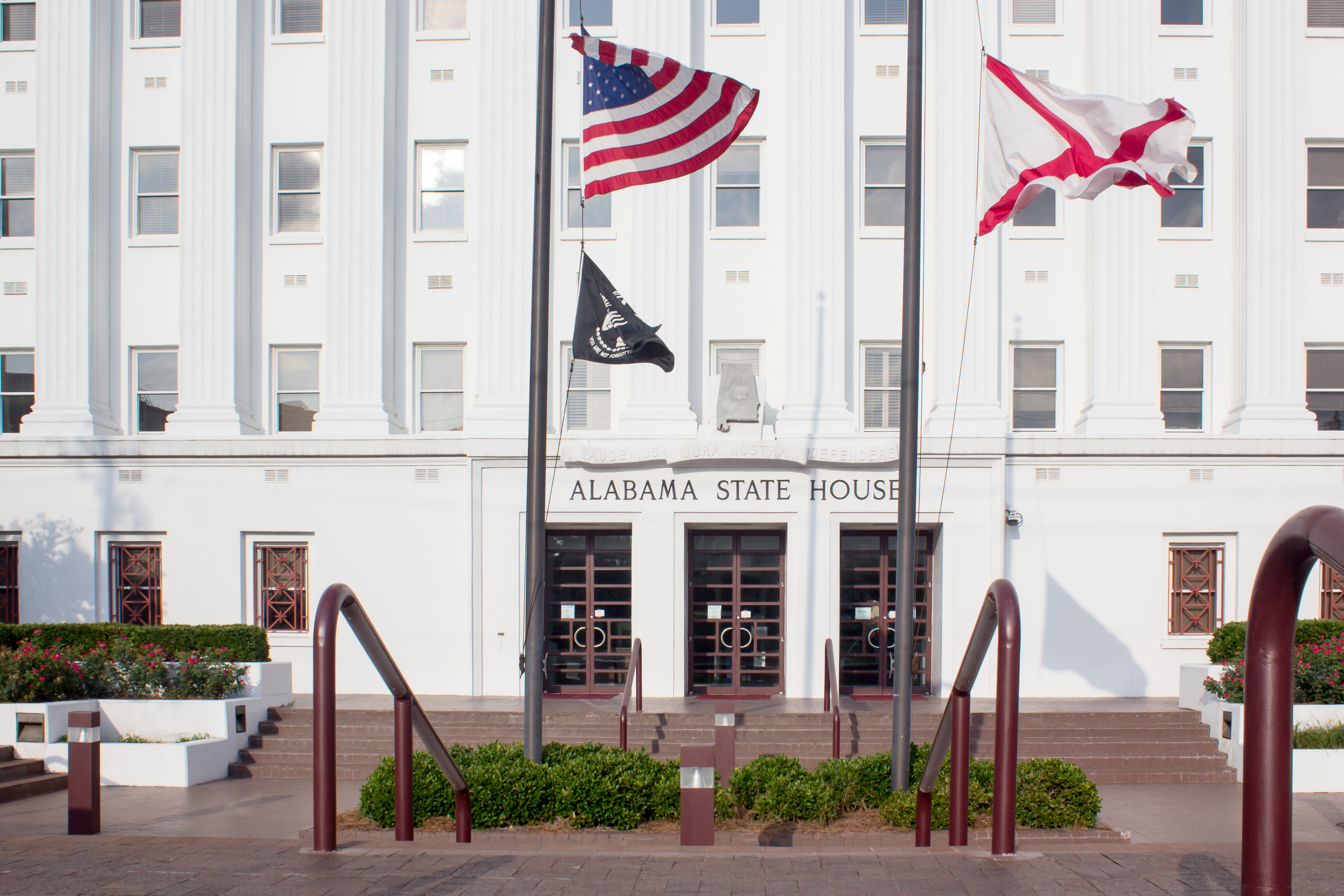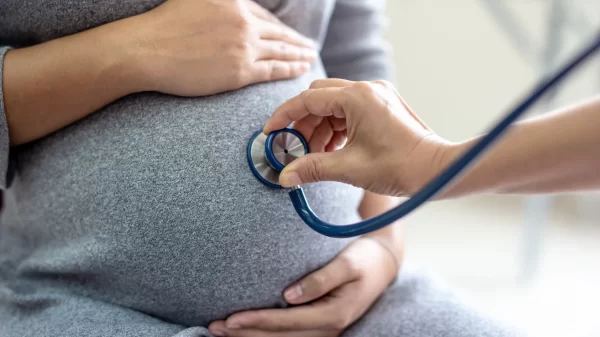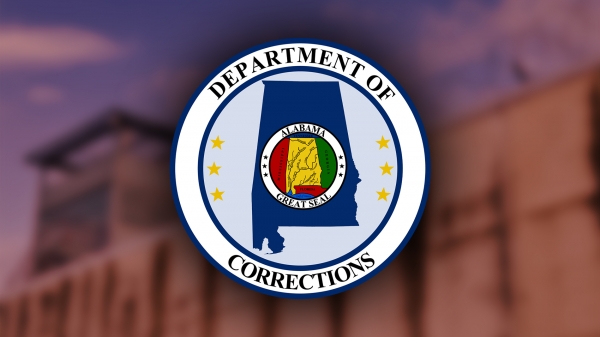The Alabama House of Representatives will consider five bills on the House floor on Wednesday, day three of the 2021 special session.
The special session was called by Alabama Gov. Kay Ivey to address the state’s crumbling prison infrastructure as well as to consider two justice reform bills. The five bill package all received favorable reports from their respective committees on Tuesday and are on the calendar for consideration by the full House.
HB4, the Prison Transformation Initiative Act, authorizes the state to issue a bond issue of up to $785 million to pay for much of the prison infrastructure plan. The legislation introduced late Monday afternoon addressing the prison infrastructure is being carried by House Ways and Means Committee Chairman Steve Clouse, R-Ozark.
Clouse explained in Committee that phase 1 of the plan involves building two new facilities for men in Escambia and Elmore Counties. A bond issue of up to $785 million will be issued to pay for the new construction.
HB4 exempts the Alabama Department of Corrections from the state bid law in choosing the general contractors for the project. Instead, the state will use the two general contractors that were contracted to build megaprisons under Gov. Ivey’s plan to do a private lease-build deal avoiding legislative oversight and the need for a bond issue.
That lease-build deal failed in May when the private prison consortiums were unable to obtain financing for the project. Supporters of the new plan claim that using those general contractors and the designs for the megaprisons in the lease-build will save time and money.
Under this plan, the new facilities would be built on land that the state already owns in Escambia and Elmore Counties. The lease-build plan had called for a third megaprison in Bibb County. That third prison was scrapped in this plan due to local opposition and the desire to keep the new prisons within the footprint of the current prison infrastructure and near where Corrections employees already live. The subcontractors for the projects will be bid out.
Clouse said that the Legislature had budgeted for the lease-build plan to cost $85 million a year in future ADOC appropriations. The final numbers for the failed lease-build deal had costs ballooning to $102 million a year. This bond issue is projected to cost just $50 million a year for the next 30 years.
Clouse explained that that $35 million a year in savings, as well as savings from being able to supervise more incarcerated people with fewer guards due to technology and surveillance, will allow ADOC to renovate existing prison facilities in Jefferson, Limestone, and either Bullock or Barbour County.
There would also be funds in phase two to build a replacement for the Julia Tutwiler women’s prison in Elmore County. That facility was built in 1942. The new facilities will also allow the state to shutter four existing prison facilities with the first of these being in St. Clair County.
HB5 appropriates $400 million of the $2 billion of American Rescue Plan funds the state received from the federal government to deal with the COVID-19 pandemic to pay for part of the construction of the Escambia County prison. Congresswoman Terri Sewell, D-Alabama, and other Democratic members of Congress have objected to the state using COVID-19 relief dollars for new prisons.
HB6 authorizes the state to spend $19 million to purchase a vacant private prison in Perry County. That facility will be operated by the Alabama Bureau of Pardons and Paroles and will be used for incarcerated people serving “dips and dunks.” Under previous prison overcrowding legislation, parole violators, rather than having their parole revoked and going back to prison receive a punishment of up to three nights in jail. That is called a dip. After six of these dips, the criminal is supposed to go back to prison, not for the remainder of his or her sentence, but instead for just 45 days. This is called a dunk.
The problem, though, is that ADOC is very slow about coming and getting incarcerated people, so many criminals serving a 45-day dunk serve it in the county jails rather than in an ADOC prison. The dips and dunks combined with ADOC’s well-known slowness in sending a bus out to pick up newly sentenced incarcerated people have led to enormous overcrowding in county jails across the state. The plan here, assuming that a final deal can be negotiated with the owners of the Perry County facility, is that Pardons and Paroles can house parole violators here rather than having them languishing in jails all over Alabama at the expense of county budgets.
HB4, HB5 and HB6 are all being sponsored by Chairman Clouse.
House Bill 1 and HB2 are justice reform bills and are being carried by House Judiciary Committee Chairman Jim Hill, R-Odenville.
HB1 allows resentencing of certain incarcerated people who were sentenced more harshly than the current sentencing guidelines. This applies only to nonviolent offenders.
Rep. Chris England, D-Tuscaloosa, had attempted to broaden the bill in the Judiciary Committee on Tuesday. That effort was tabled as were amendments by conservatives to make the bill more limited.
This would only affect about 700 incarcerated people, and they are in three groups: offenders who were sentenced prior to 2013 that have been incarcerated all of this time, offenders who were not initially incarcerated but violated terms of their suspended sentence and are now in prison serving their sentence, and offenders who were incarcerated and then paroled, but reoffended and have had their parole revoked.
HB2 requires that all incarcerated people be released to a supervised release program prior to their final release. This has been a requirement since 2015, but did not apply to persons incarcerated prior to that. HB2 would require that those incarcerated people who were sentenced prior to 2015 also get a period of supervised release prior to the end of their sentence. This does not apply to those incarcerated people who are released on parole as parole is by definition a supervised release. The Alabama Bureau of Pardons and Paroles will be tasked with deciding what manner of supervision is necessary.
Both of these bills passed the House of Representatives last year; but died from lack of action in the Alabama Senate. Both of these proposals were recommended by the governor’s task force on justice reform.
Democrats are calling on the state to do more for justice reform and Speaker of the House Mac McCutcheon, R-Monrovia, has promised a more robust justice reform package during the 2022 Legislative Session.
The bills that pass the full House Wednesday will then be in committee in the state Senate on Thursday. The Senate is expected to vote on those bills that get that far on Friday. The House will meet on Friday awaiting Senate passage of the package so that the House can address Senate changes to the bills.
The special session is expected to end at the close of the day on Friday. If the bills hit some sort of snag, however, this special session could drag on.





















































